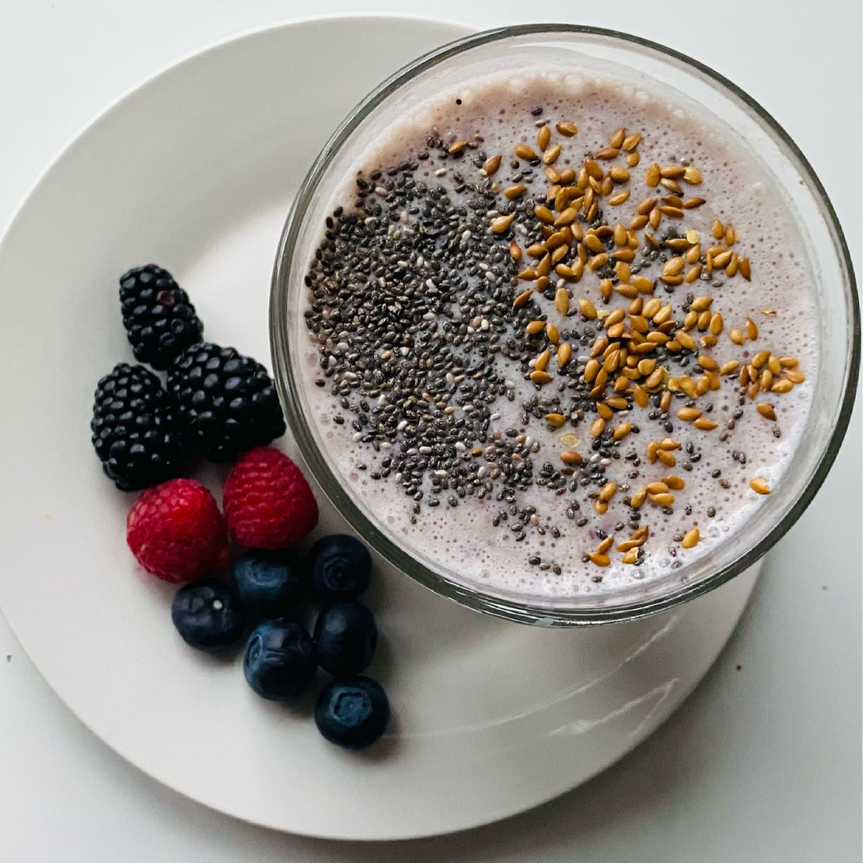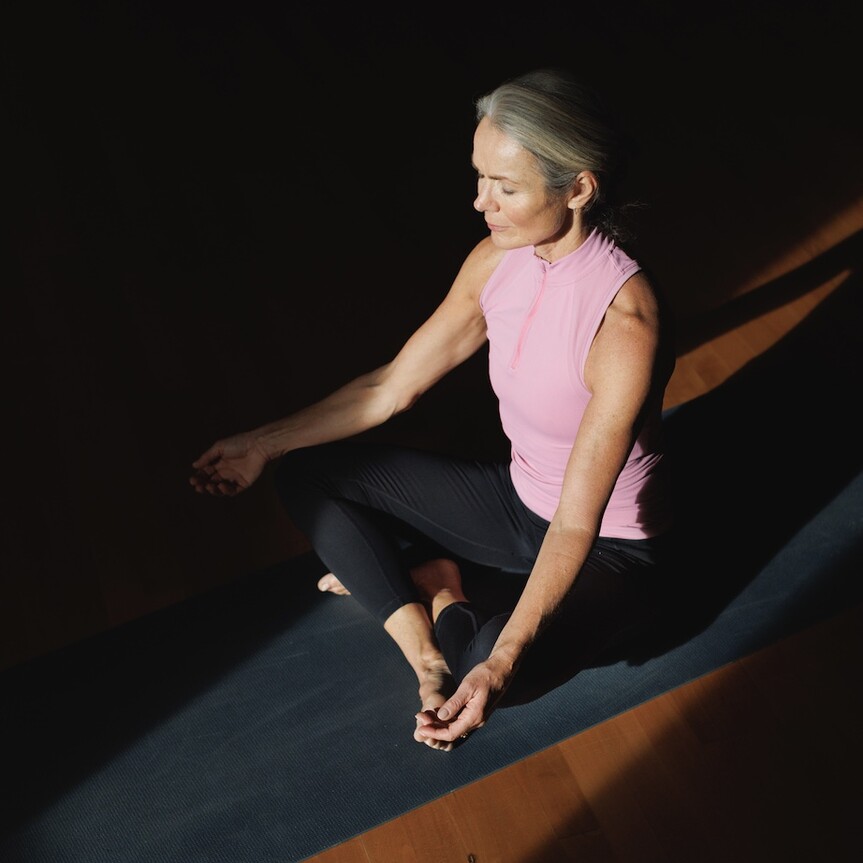The good news? You don’t need a complete lifestyle overhaul to start feeling better. Often it’s the smallest, most consistent tweaks that have the biggest impact on your energy, mood, and sense of control. As a Registered Nutritionist who specialises in supporting women through this stage of life, I cannot stress enough that it is the habits you do consistently that make far more of an impact on how you feel than the big gestures that are not maintainable.
Here are some of the powerful, but simple, daily shifts that I use with my clients, and they really add up.

1. Start The Day With Balance
Your first meal sets the tone for your blood sugar, energy, and even your mood. A breakfast high in refined carbs (toast and jam, cereal, pastries) might give you a quick boost, but it often leads to a mid-morning slump, irritability, and cravings.
Instead, aim for protein and fibre. Think Greek yoghurt with berries and seeds, or eggs with vegetables. Balanced blood sugar means fewer crashes, less brain fog, and a steadier mood through the day, something we all need when hormones are fluctuating.

2. Move Your Body in Ways You Enjoy
Exercise in menopause isn’t about punishment or forcing yourself through gritted teeth, it’s about finding movement that supports your body and helps manage symptoms. Strength training helps protect your bones and muscles; walking outdoors calms your nervous system and boosts vitamin D; yoga can improve flexibility and reduce stress.
The key? Pick something you’ll actually look forward to. Five minutes of gentle stretching counts. A brisk walk at lunchtime counts. Over time, these little pockets of movement add up to better sleep, improved mood, and more energy.

3. Prioritise Hydration
Hot flushes, night sweats, headaches and fatigue, many menopause symptoms feel worse if you’re even slightly dehydrated. Water might not sound like a magic solution, but drinking enough really does make a difference.
A simple tweak: keep a reusable bottle handy and aim to sip regularly rather than guzzling in one go. Herbal teas and water infused with lemon, cucumber, or mint can make hydration feel more appealing
4. Guard Your Sleep Like Treasure
Menopause and sleep don’t always get along. Hormonal shifts can make it harder to fall asleep or stay asleep. While you might not be able to guarantee 8 perfect hours, you can create habits that make rest more likely.
- Finish eating at least 2 hours before bed.
- Avoid caffeine after lunch.
- Keep your bedroom cool and dark.
- Wind down with a calming routine: reading, gentle stretches, or breathing exercises.
- Try to go to bed and wake up at roughly the same times each day.
These small rituals train your body to understand when it’s time for rest. Over time, even an extra 30–60 min of solid sleep can change how you feel the next day.

5. Build in Moments of Calm
Stress and menopause are like adding fuel to a fire, higher stress levels can make symptoms worse. That’s why it’s so important to carve out even tiny moments of calm.
It doesn’t have to be elaborate. A few deep breaths before a meeting, stepping outside for a dose of fresh air, or listening to a favourite song can reset your nervous system. These micro-moments matter.
Menopause doesn’t have to be about fighting your body. It’s about working with it, and creating daily rhythms that support your wellbeing. You don’t need to do everything at once, just pick one habit, and weave it into your day until it feels natural. Then add another. And keep going.
Zara Watt, BSc(hons) DipION mBANT mCNHC
Registered Nutritional Therapist
www.zarawatt.com; @zarawattnutrition
